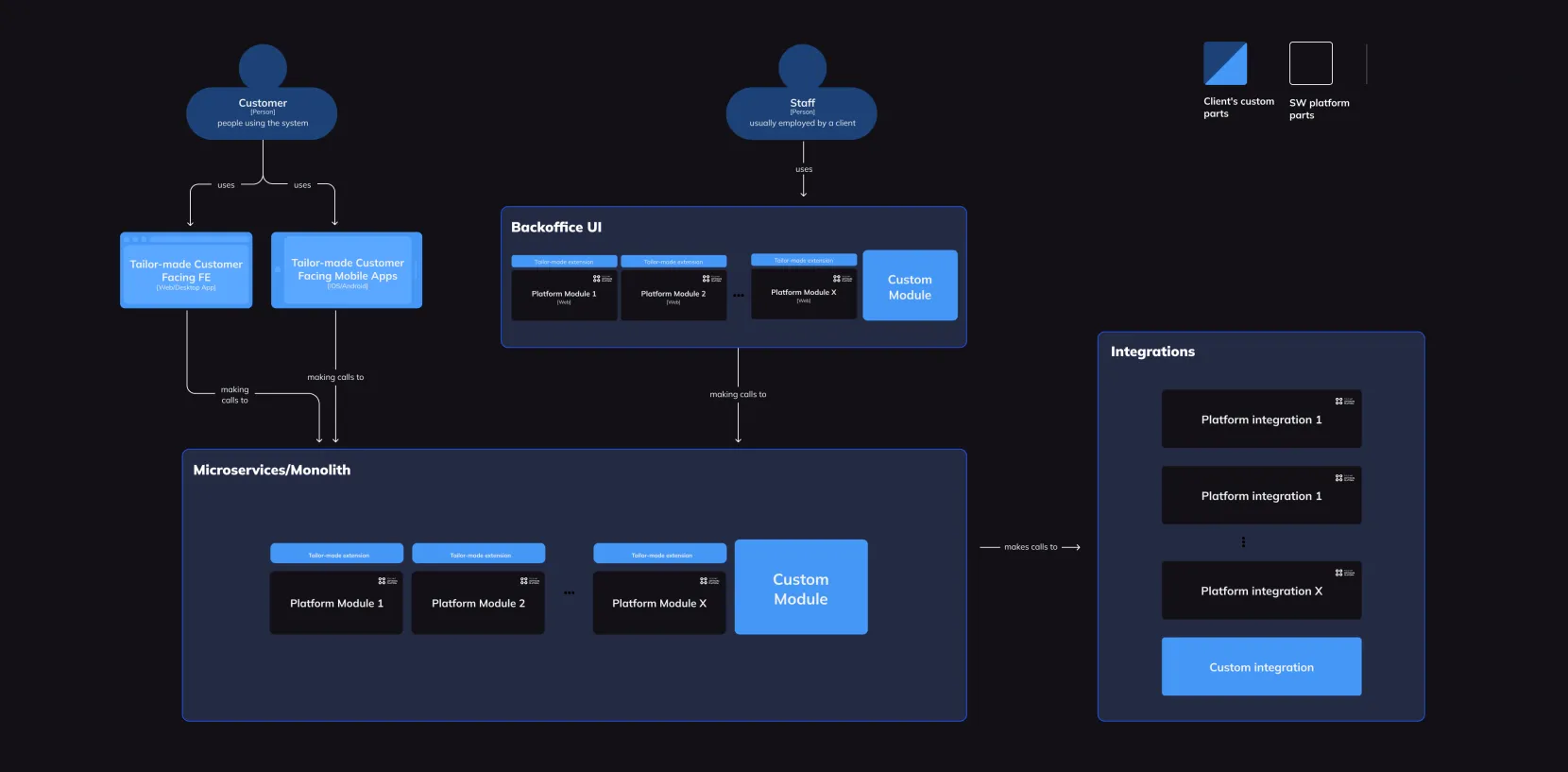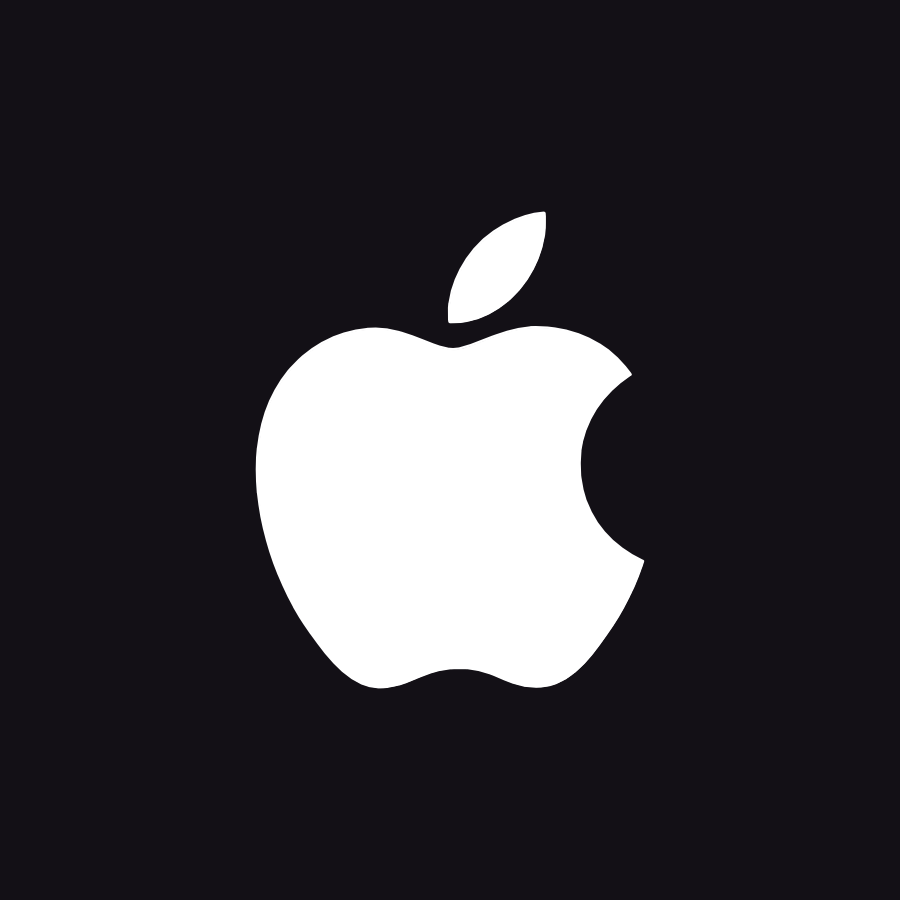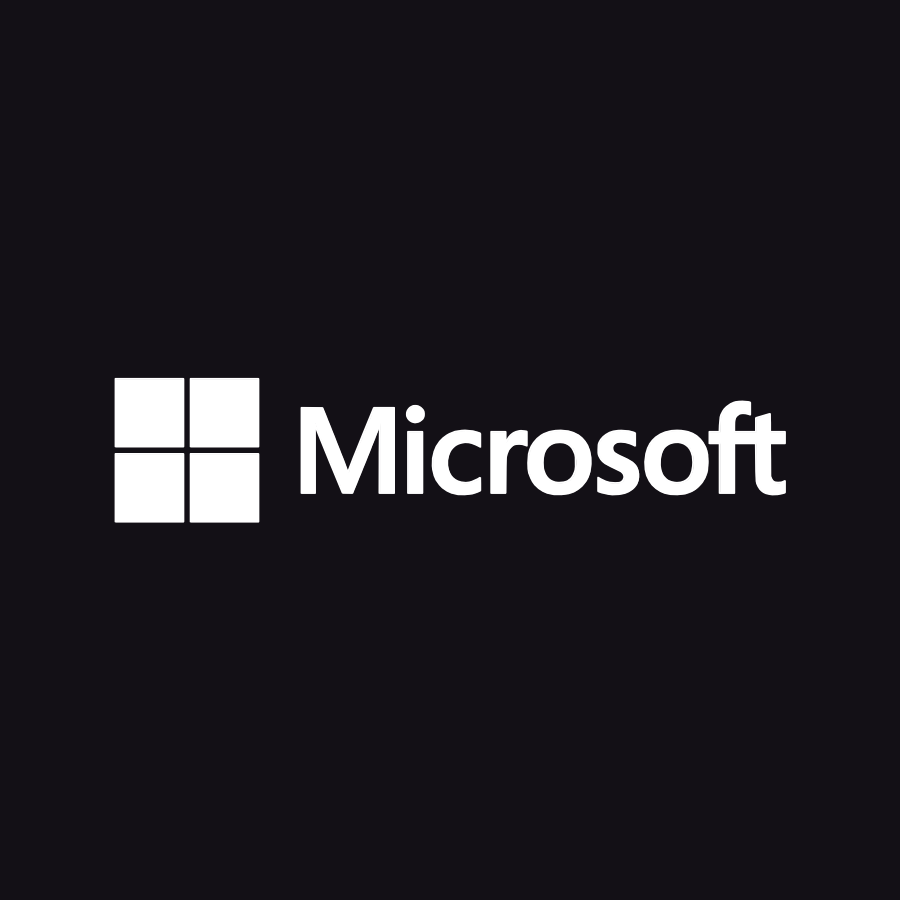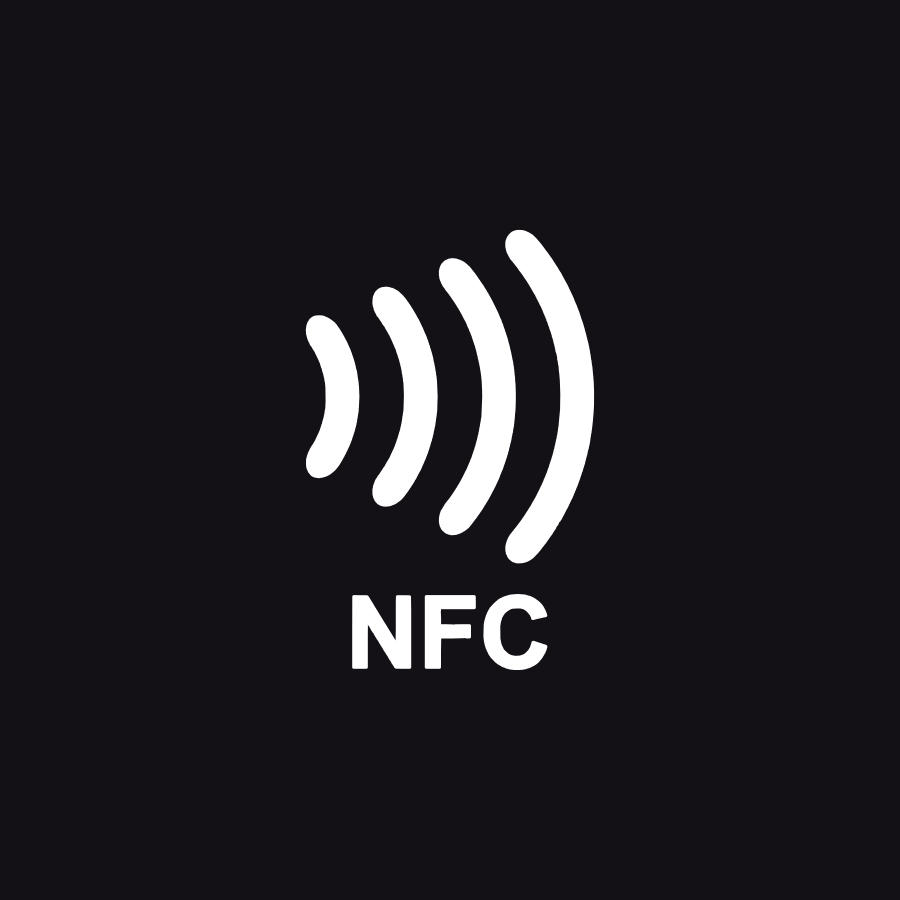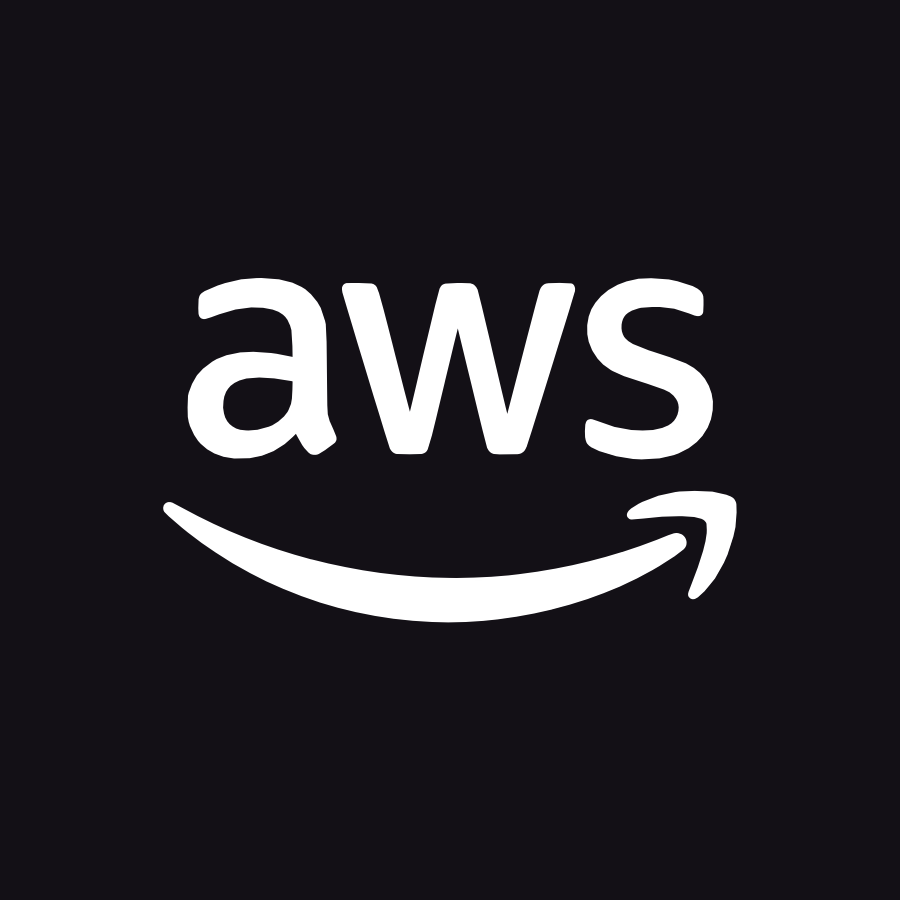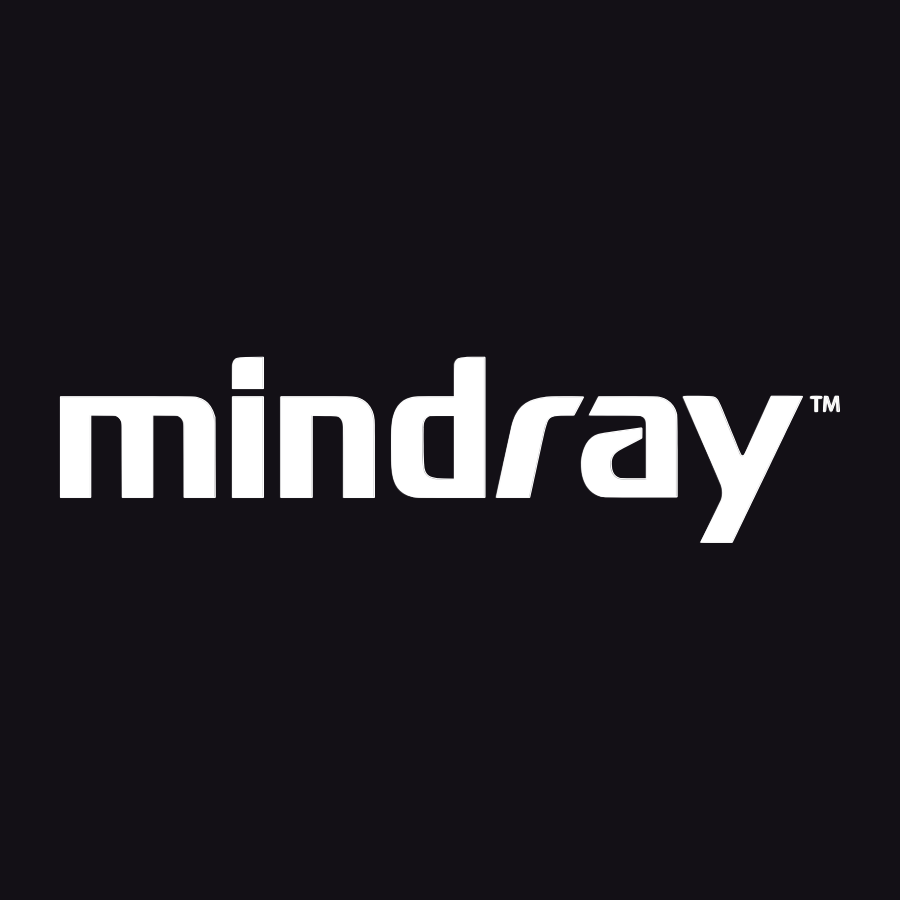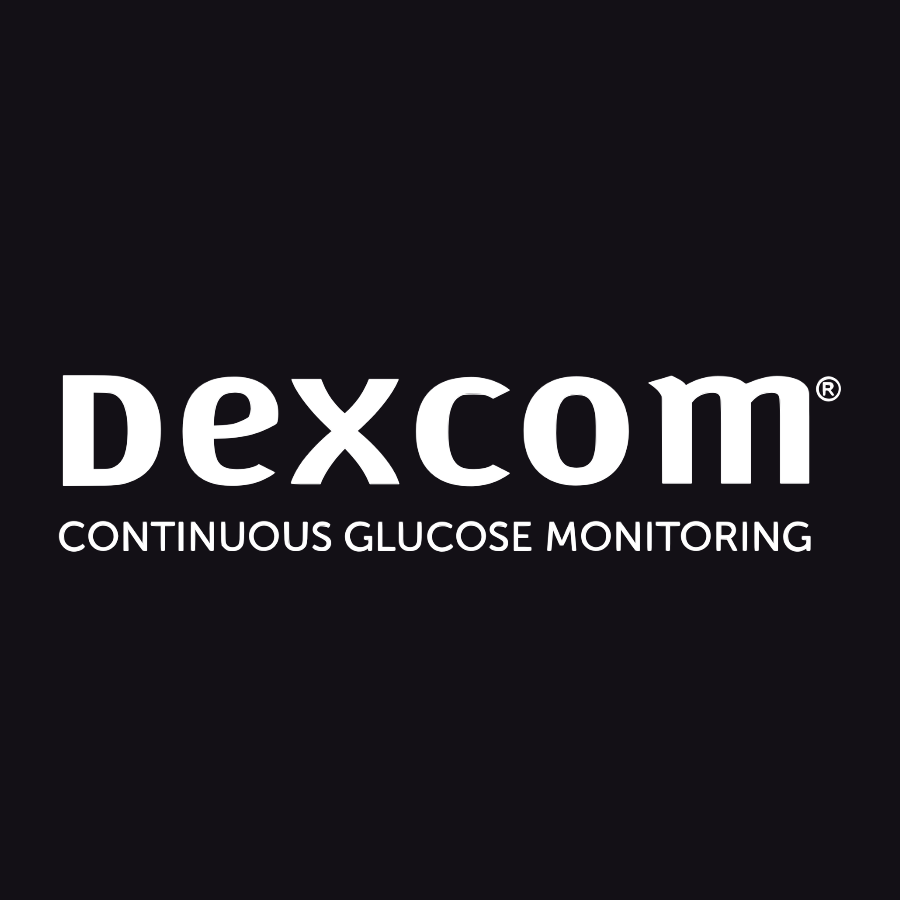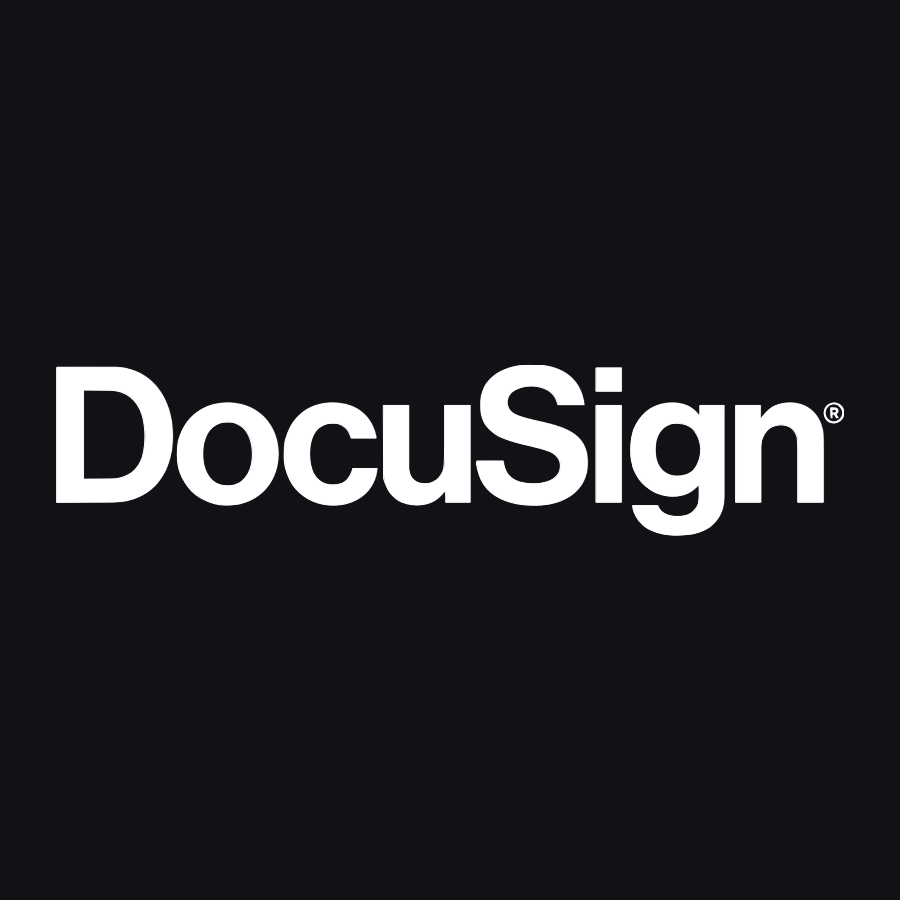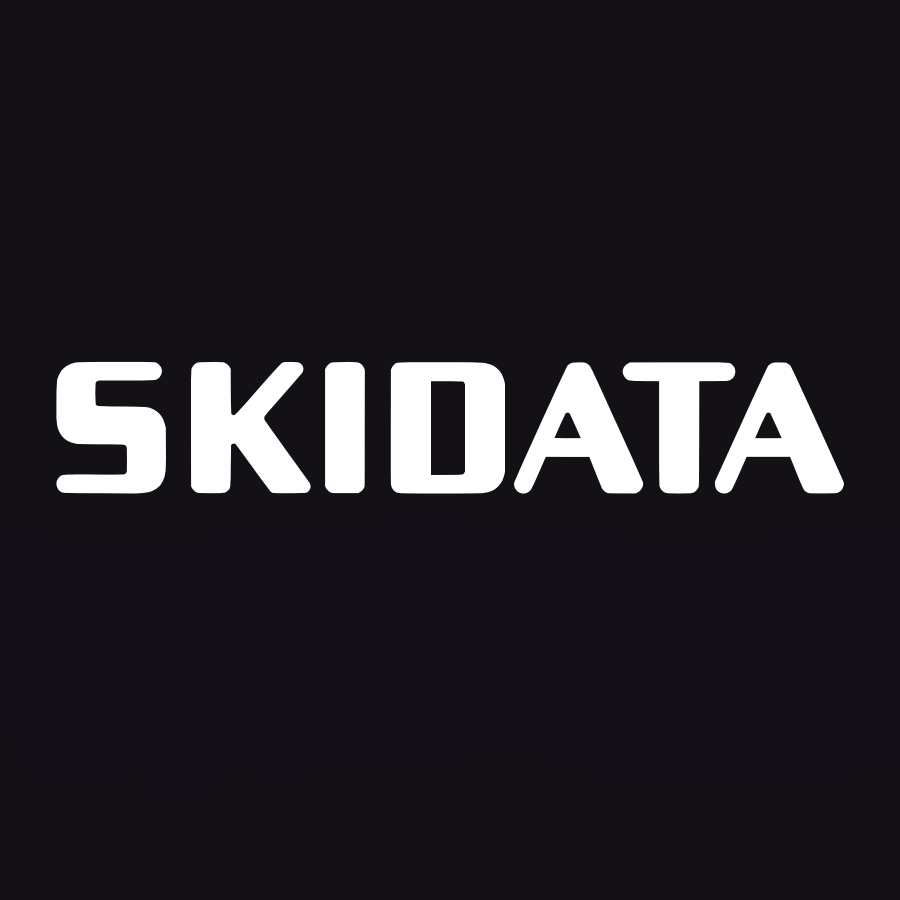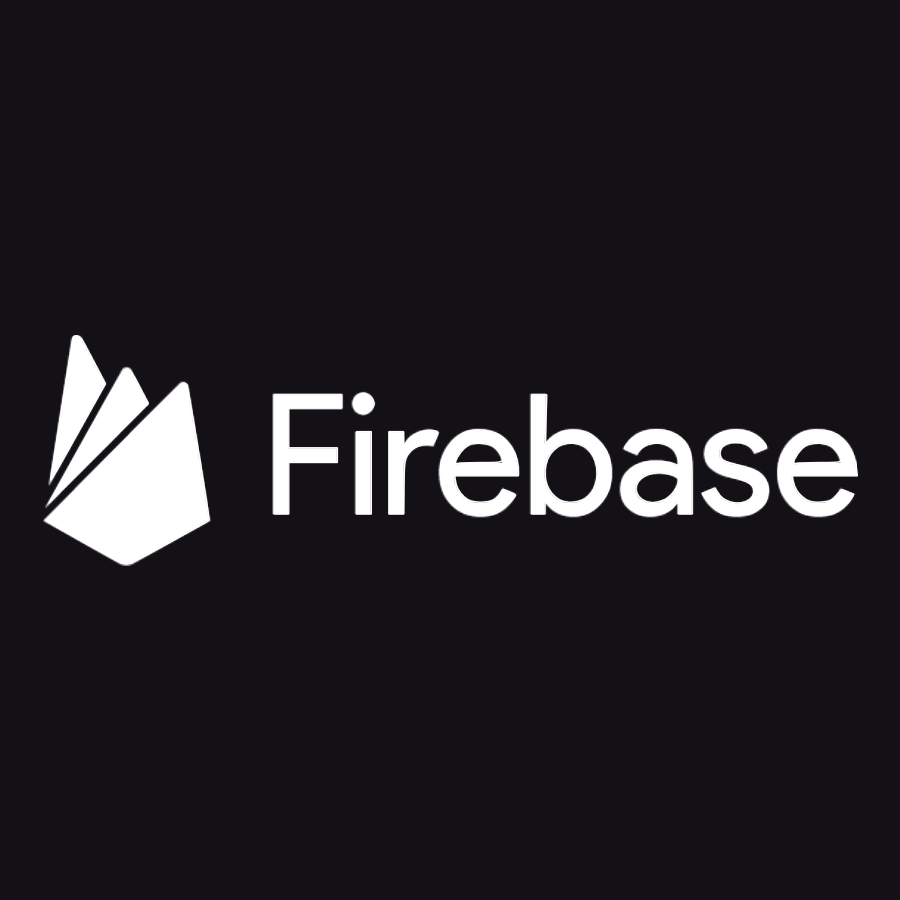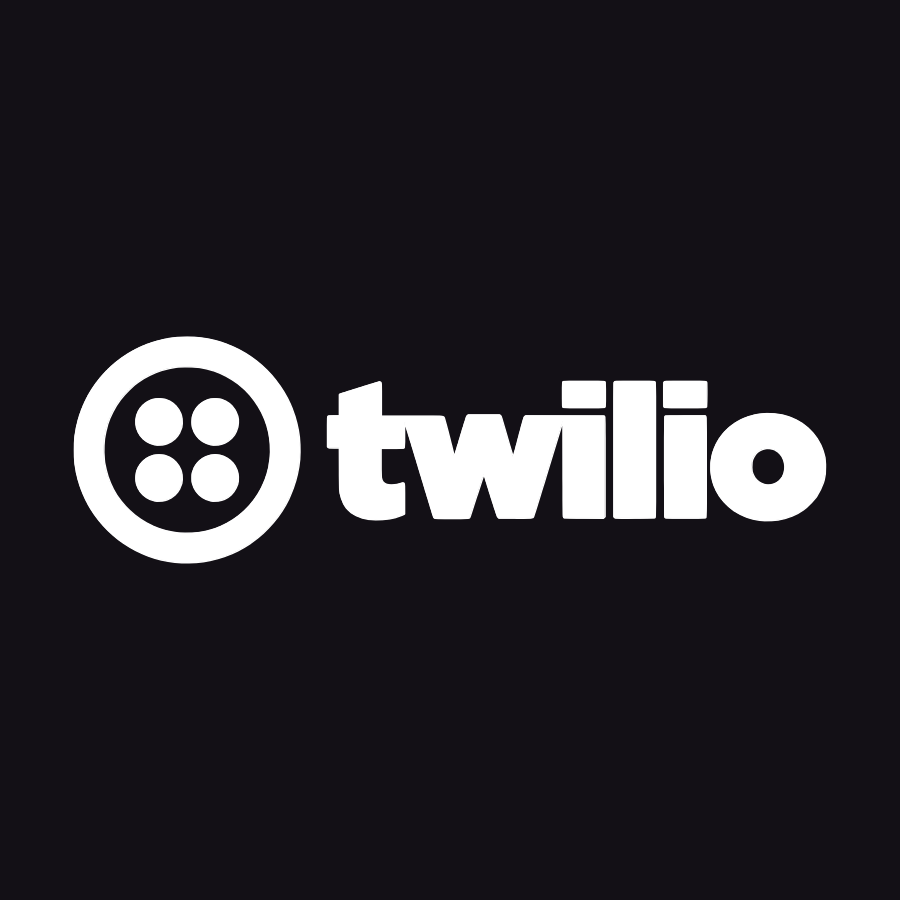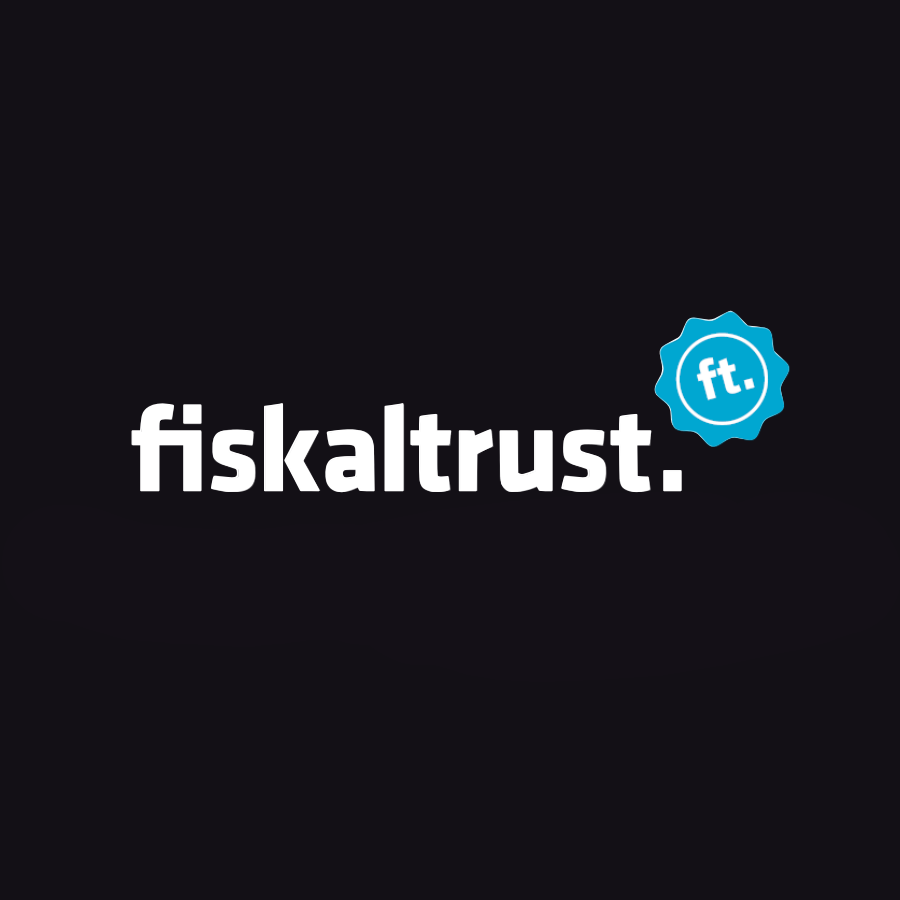Touch4IT Software Platform
Our Complex Tech Solution For Businesses
Our Touch4IT Software Platform, which utilizes small building blocks, enables us to develop and maintain complex software solutions faster and more efficiently.
It is not a ready-made solution but a collection of front-end and back-end components and modules that simplify the development of digital products, ensure their more effective maintenance, and guarantee comprehensive security.
Tailored Solutions Made Simple with Our Modules
Our collection of advanced and secure modules gives us a head start in delivering digital products. Therefore, when a client requests to develop any system, we don't have to spend as much time on technical solutions. Instead, we focus more on their unique business requirements and fine-tune their digital product to the smallest detail, ensuring it surpasses all clients' goals.
The platform enables the development of various systems tailored to different industries, including E-commerce, ERP, CRM, loyalty program software, custom internal systems, social networks, telehealth, and more.
Key Features
Platform Concept
We have pre-built backend modules, an equivalent Backoffice UI, and the Customer Facing interface is built from scratch.
Platform Built on SOLID principles
SOLID principles are a set of five design principles that aim to create more maintainable, flexible, and scalable software systems.
Support for Microservice and Monolithic Architecture
We select the appropriate system architecture based on the client's business needs and requirements. It can be a microservice architecture, monolithic architecture, or anything the client wants and needs for their business and specific requirements.
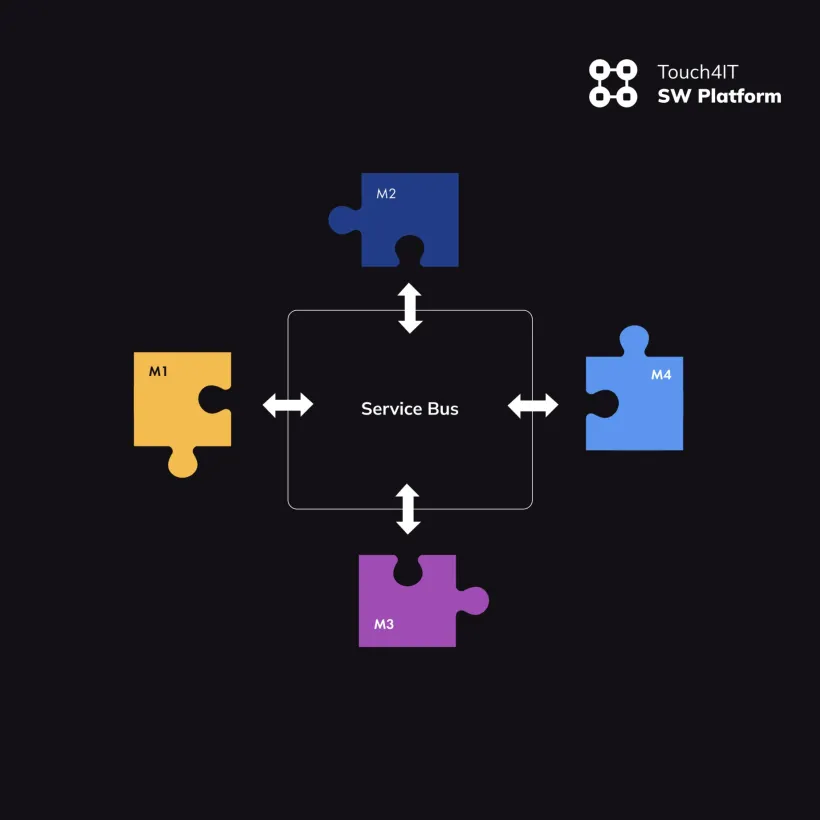
Benefits of Microservice Architecture
- Easy to scale
- Independent deployment
- Flexibility
- Eliminating the technology lock
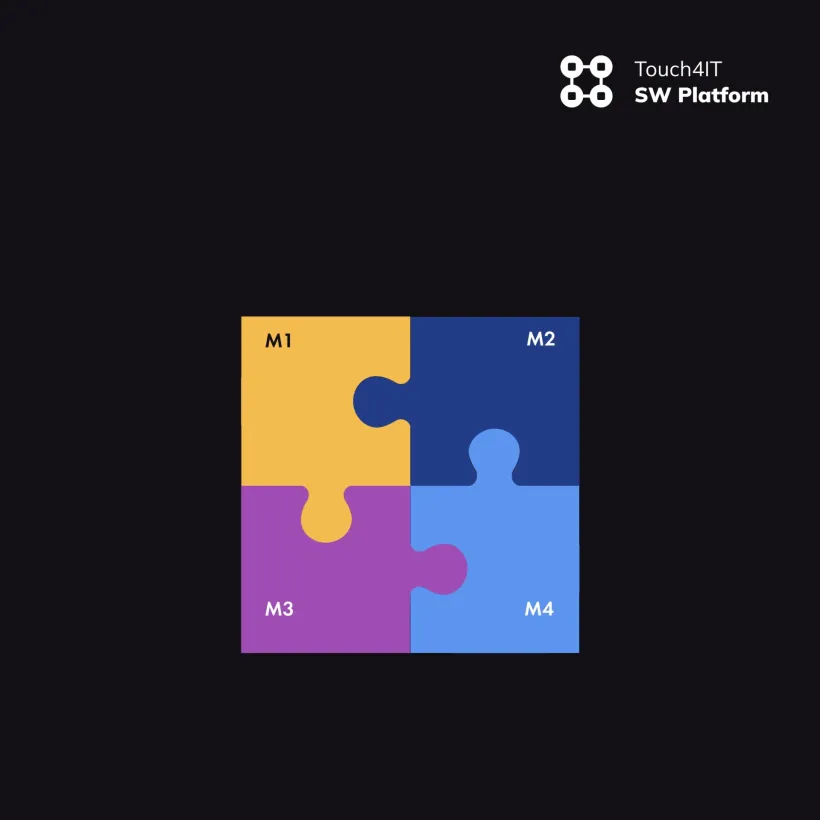
Benefits of Monolith Architecture
- Simplified testing
- Easy debugging
- Easy deployment
- Reduced costs for infrastructure maintenance
Pre-built Modules of the Platform
And Other Integrations of the Platform
Projects Built on the Platform
FAQ
How Might This Solution Benefit Your Business? Let's Talk!
We will connect with you and discuss all possibilities.
